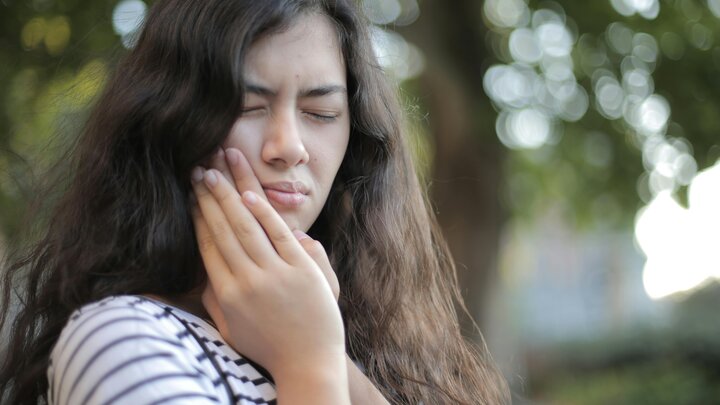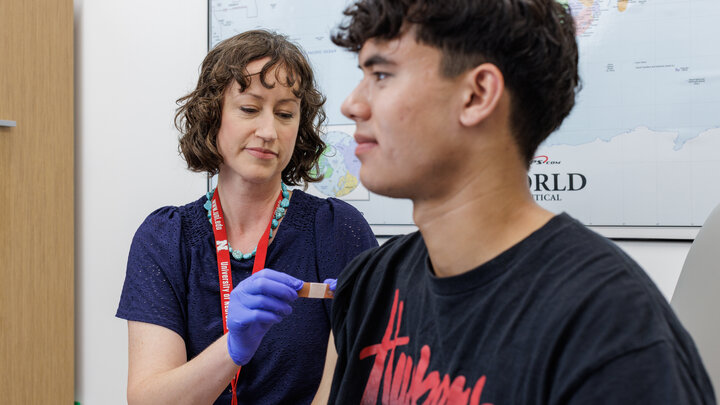Bruxism ─ more commonly known as teeth clenching or teeth grinding ─ happens when you grind or press your teeth together. It’s more common than you might think, and many people do it without even realizing it.
Causes of teeth clenching
Bruxism can happen at any time of day, but often falls into two categories:
- Daytime bruxism is usually linked to emotional triggers like stress, anxiety or intense concentration.
- Nighttime bruxism occurs during sleep and is often more severe because you're unaware it's happening.
Symptoms and warning signs
You may not notice you're grinding or clenching your teeth until symptoms appear, such as:
- Tension or pain in your jaw.
- Waking up with headaches.
- Sensitive or worn-down teeth.
Ignoring the signs of bruxism can lead to long-term problems. Over time, you could develop:
- TMJ disorder (temporomandibular joint dysfunction), which affects jaw movement and can cause chronic pain.
- Tooth damage, including chips, cracks or enamel wear.
- Poor sleep quality, which can affect mood, health and academic performance.
Treatment options
The good news is that bruxism is manageable and treatable. Here are a few ways to protect your teeth and reduce grinding or clenching:
- Dental guards: These custom-fit devices create a barrier between your teeth. The University Health Center’s dental clinic can help you get fitted for one.
- Stress management: Reducing stress can make a big difference. Consider talking to a counselor through CAPS or try mindfulness and relaxation techniques.
- Behavioral changes: Avoid chewing on pens or gum, watch your posture and stay mindful of clenching during the day.
If you're dealing with frequent headaches, jaw soreness or suspect you’re grinding or clenching your teeth, make an appointment with the University Health Center dental clinic by calling 402.472.7495.




